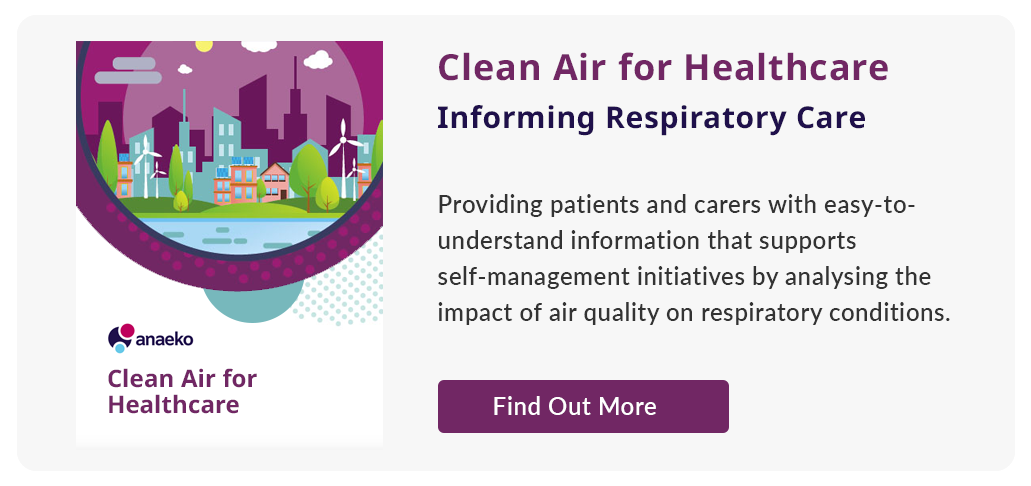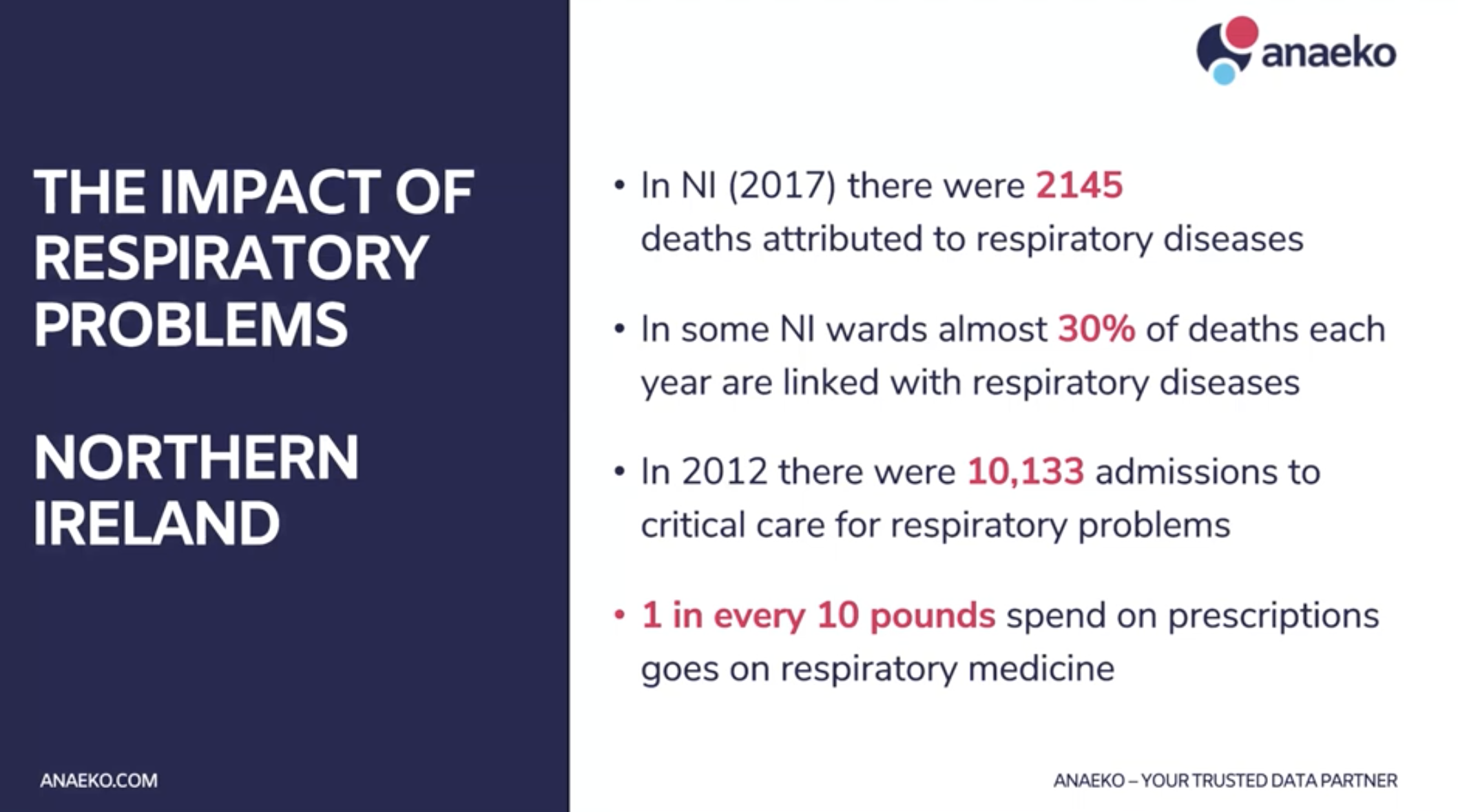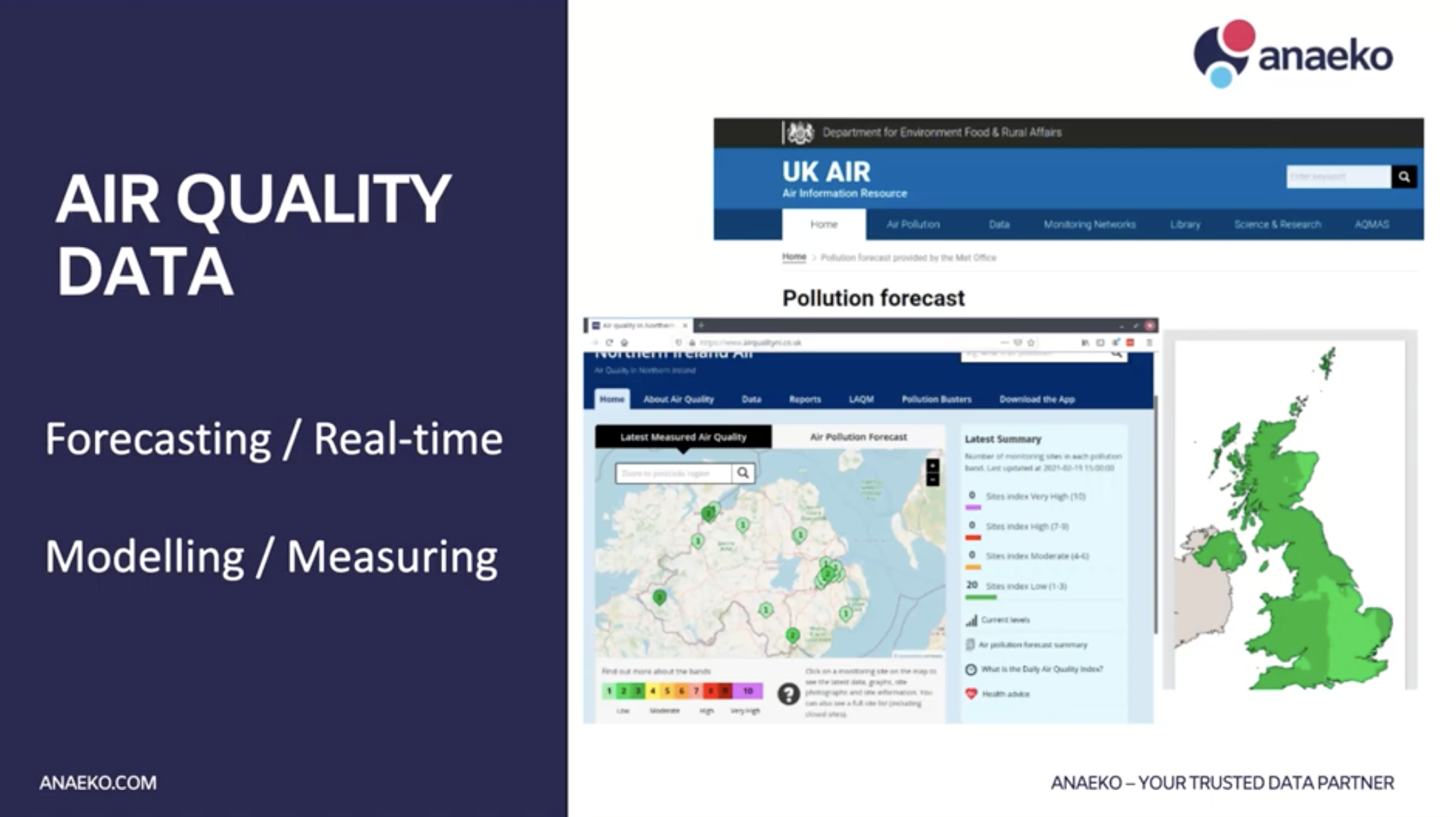Introduction to the Anaeko SBRI Project
Good afternoon everyone and welcome to the webinar, Creating Clean Air for Healthcare: an SBRI Story, my name is Lucy Wakeford i'm the head of online at Digital Leaders and it's my pleasure to be chairing this session. Before I introduce our presenter I'd firstly like to recap the topic to give anyone who might be running late a chance to join this webinar will be a brief exploration of what it is like to take part in a Small Business Research Initiative, an SBRI competition. It will include what we learned about working with open data the successes and missteps along the way and how Anaeko used data to understand the impact of pollution and deprivation on health and why it matters.
I'd now like to introduce Roger Wallace who'll be taking us through today's webinar with over 25 years of experience across academia research and industry Roger is a business analyst and data analyst with deep technical knowledge and a broader experience across software architecture, analytics, platform design, development and operations over the past decade. Roger has specialised in hybrid and multi-cloud data analytics drawing on years of experience in the design and development of data integration and data management project products.
Thank you Lucy and thanks everyone for for joining. My name is Roger and i work for a Belfast based software company called Anaeko, so this is hopefully going to be a short talk about our experience in taking part in a healthcare initiative. Anaeko is a software company, we've been in operation for 15 years now and we specialise in data, cloud management, data migration, data analysis and both tactical and strategic data optimisation.
Now that sounds like a bit of an advert for us and I guess it is but it's useful just to set the context for our involvement in this project which was a healthcare innovation project. We have worked for government, large enterprise for banks, telecom companies and cloud infrastructure providers but throughout our history we've also been involved in smaller innovative projects, for startup companies, helping them build their platforms and explore their business ideas. We're currently excited about opportunities around smart city initiatives and how they fit with our skills and our experience.
So this talk is going to be a short one about our experience of working on a healthcare SBRI. For those of you who are not familiar with what an SBRI is i can come back to that shortly. I will cover what we did, the kind of challenges that we experienced and what we learned along the way, including some surprises or hiccups that we encountered.
An SBRI is a government funding program that matches government challenges with business innovation. It's a Small Business Research Initiative and it's been running for 20 years, so it's not a new thing and it's based on an American model that goes back to the 80s. The key thing to know for this talk about an SBRI that as opposed to other funding initiatives it's run as a competition. There are rules, rules about fairness and also rules and guidance about how the SBRI sponsor should get involved and that has implications to this story.
So let's look at the problem statement for the SBRI that we were involved in. It's a solution that helps to demonstrate the link between air pollution and ill health on a geographical basis. To help those with long-term health conditions manage their exposure to air pollution to empower citizens to make better life choices, to enable GPs to better manage and plan care for people with long-term conditions and possibly to enable consultants to develop new pathways of care for long-term economic conditions. Our sponsor for this SBRI was primarily the health department for Northern Ireland but there was additional support from the Department of the Environment and Belfast City Council. There are projects like this happening across the UK looking at pollution and looking at empowering people to manage their health so this is just one of many that are running in recent years.
Let's look again at the idea of this Small Business Research Initiative and its competition element. The guidance to SBRI sponsors includes instructions to support the innovation but not to direct it, do not provide detailed definition of challenge, avoid working too closely with competitors to drive that innovation because you just end up driving everyone in the same direction rather than encouraging a surprise and encouraging that innovation. I would say that from Anaeko's perspective that was our first hiccup along the way because in a perfect world Anaeko works to solve problems with customers, we expect customers to fully engage, that isn't always the case, but we work best when we can work with a customer to understand and analyse their problem.
The SBRI competition is exceptionally even-handed it is fair and seem to be fair and in practical terms that really means little help, little guidance, minimum engagement, you're effectively on your own. In situations like this what we do is nominate someone within Anaeko to take on that role of a customer, that stakeholder, who can help drive the project to effectively become an expert and for this project, partly that's because I have experience in research and I sometimes play this role within those projects. For me personally I was interested in being involved in this because I had two sons who when they were younger were both admitted to hospital with breathing difficulties and in fact my eldest son ended up in intensive care for four days. This was 11 years ago and I still vividly remember at the time no one really wanted to explain how two boys could be hospitalised on the same day. One consultant did mention or suggest environmental causes but wouldn't be drawn on that and it wasn't really until I got involved in this SBRI that I started to understand potential reasons for what happened.
Topics: Open Data, Healthcare, data discovery, Innovation, data sharing



